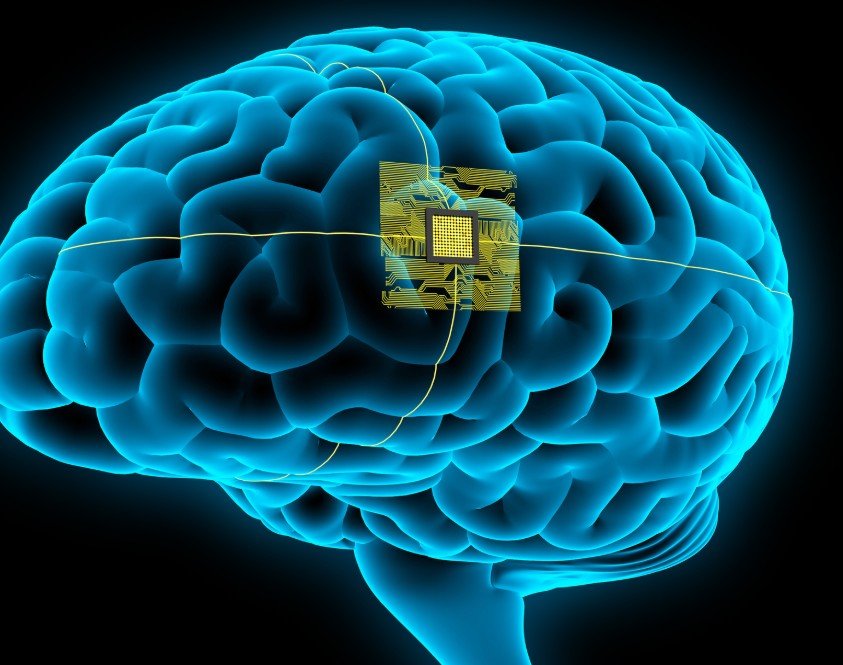In Riyadh, Saudi Arabia, doctors at King Faisal Specialist Hospital and Research Centre have started using an AI-powered brain implant to help patients with Parkinson’s disease. This small device, implanted in 2025, listens to brain signals in real time and adjusts stimulation to reduce symptoms like tremors and stiffness, offering hope for better daily life without fully relying on drugs.
The hospital performed the Middle East’s first such implant in June 2025. Since then, they have expanded its use, monitoring patients and fine-tuning the technology to cut medication needs by up to 50 percent.
How the AI Implant Works
This matchbox-sized device marks a shift from older neurostimulation methods. It uses artificial intelligence to detect abnormal brain activity and deliver targeted electrical pulses right away.
Doctors insert it through a minimally invasive surgery that lasts three to five hours. Patients recover quickly and return to normal activities soon after.

The implant learns from each person’s brain patterns over weeks or months. It adapts to individual needs, making treatments more personal and effective.
During calibration, medical teams review data and make small changes. This process helps the device respond better to symptoms as they happen.
Benefits for Parkinson’s Patients
People with Parkinson’s often face constant tremors, slow movements, and muscle rigidity. The AI implant aims to ease these issues by providing on-demand stimulation.
Early users report fewer interruptions in daily tasks. Some say they feel more in control, with symptoms feeling less overwhelming.
The technology could lower the side effects from long-term drug use. By reducing medication doses, it helps avoid problems like nausea or involuntary movements.
Hospital staff note that patients experience improved mobility and sleep. This leads to a better quality of life overall.
Here are key advantages seen in initial cases:
- Reduced tremors during everyday activities
- Less stiffness, allowing smoother movements
- Potential drop in daily pill intake
- Quicker recovery after the procedure
Challenges and Ongoing Developments
Not every patient qualifies for the implant. Doctors assess factors like disease stage and overall health before proceeding.
The calibration period requires regular check-ups. Some patients need time to adjust to the device’s effects.
Researchers continue to study long-term outcomes. They track how well the implant holds up over years.
In 2025, the hospital expanded its program, implanting the device in more cases. This builds on the groundbreaking debut earlier in the year.
| Aspect | Traditional Stimulation | AI-Powered Implant |
|---|---|---|
| Response Time | Fixed schedule | Real-time detection |
| Personalization | Limited adjustments | Learns from brain patterns |
| Medication Impact | No direct reduction | Up to 50% less needed |
| Surgery Duration | Often longer | 3-5 hours minimally invasive |
| Learning Capability | None | Adapts over weeks to months |
Global Impact on Neurological Care
King Faisal Specialist Hospital ranks among the world’s top medical centers. Its work with this implant puts Saudi Arabia at the forefront of AI in healthcare.
Similar technologies appear in other countries, like brain implants for paralysis or epilepsy. This fits into a broader trend of blending AI with medicine.
Experts predict more advances in treating disorders like epilepsy and movement issues. The hospital’s success could inspire global adoption.
In the Middle East, this innovation boosts access to cutting-edge care. It shows how technology can address chronic conditions in new ways.
Looking Ahead to Future Treatments
As 2025 ends, the hospital plans further expansions. They aim to refine the AI algorithms for even better results.
Ongoing trials will measure long-term benefits. This could lead to approvals for wider use.
Patients and families watch these developments closely. For many, it represents a step toward managing Parkinson’s more effectively.
Share your thoughts on this medical advance in the comments below. If you found this article helpful, pass it along to others who might benefit.
